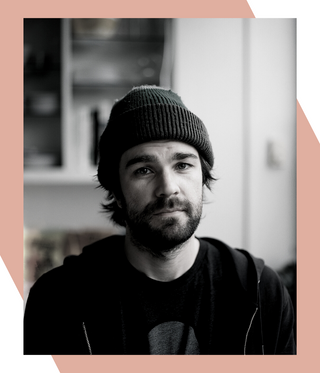How do you make the jump from conceptual artist to video game designer and then back again? New York-based artist and game designer Zach Gage has managed this for years.
His work since then reflects an itinerant nature that’s moved from fonts to sound design to performance. Oh, and there are some Proper Video games thrown in there like Typeshift, Really Bad Chess, and Card of Darkness. The throughline of all his work is a deep love and exploration of systems and the generative behaviors that they create in players.
In this talk, Killscreen founder Jamin Warren talks with Gage about jumping in and out of video games and exploring how to mix commercial video game design with work as an artist. We’ll also talk about Zach’s approach to his process, looking at his most popular gaming projects and favorite conceptual pieces.
About The Speaker
Zach Gage is a game designer, programmer, educator, and conceptual artist from New York City.
His work often explores the powerful intersection of systems and social dynamics,
both through re-contextualizing existing systems and structures in digital and physical spaces, as well as framing entirely new systems through original games.
An Eyebeam Alumni, Apple Design and Game of The Year Award Winner, and BAFTA Nominee, he has exhibited internationally at venues like the Venice Biennale, the New York MoMA, The Japanese American National Museum in Los Angeles, XOXO Festival in Portland, FutureEverything in Manchester, The Centre for Contemporary Art Ujazdowski Castle in Warsaw, and in Apple stores worldwide. He has also had a solo exhibition at Postmasters in New York.
His work has been featured in several online and printed publications, including The New York Times, Art in America, The New York Times Magazine,
EDGE Magazine, Rhizome.org, Neural Magazine, New York Magazine, and Das Spiel und seine Grenzen (Springer Press).
In games, he is best known for SpellTower, Ridiculous Fishing, Sage Solitaire, and Lose/Lose.
How do you make the jump from conceptual artist to video game designer and then back again? New York-based artist and game designer Zach Gage has managed this for years.
His work since then reflects an itinerant nature that’s moved from fonts to sound design to performance. Oh, and there are some Proper Video games thrown in there like Typeshift, Really Bad Chess, and Card of Darkness. The throughline of all his work is a deep love and exploration of systems and the generative behaviors that they create in players.
In this talk, Killscreen founder Jamin Warren talks with Gage about jumping in and out of video games and exploring how to mix commercial video game design with work as an artist. We’ll also talk about Zach’s approach to his process, looking at his most popular gaming projects and favorite conceptual pieces.
About The Speaker
Zach Gage is a game designer, programmer, educator, and conceptual artist from New York City.
His work often explores the powerful intersection of systems and social dynamics,
both through re-contextualizing existing systems and structures in digital and physical spaces, as well as framing entirely new systems through original games.
An Eyebeam Alumni, Apple Design and Game of The Year Award Winner, and BAFTA Nominee, he has exhibited internationally at venues like the Venice Biennale, the New York MoMA, The Japanese American National Museum in Los Angeles, XOXO Festival in Portland, FutureEverything in Manchester, The Centre for Contemporary Art Ujazdowski Castle in Warsaw, and in Apple stores worldwide. He has also had a solo exhibition at Postmasters in New York.
His work has been featured in several online and printed publications, including The New York Times, Art in America, The New York Times Magazine,
EDGE Magazine, Rhizome.org, Neural Magazine, New York Magazine, and Das Spiel und seine Grenzen (Springer Press).
In games, he is best known for SpellTower, Ridiculous Fishing, Sage Solitaire, and Lose/Lose.


